Blog Section
.
Roofing Contractor in Boston MA
You’re walking down the streets of Boston, taking in the city’s historic charm and bustling energy. Suddenly, you notice a few loose shingles on your home’s roof.
As a homeowner, you know that a well-maintained roof is crucial for protecting your investment and ensuring the safety of your loved ones. But where do you turn for a reliable roofing contractor in Boston?
Well, look no further. In this discussion, we will explore the expertise and comprehensive services a roofing contractor offers in Boston, MA.
Get ready to discover the top-quality materials, craftsmanship, and free consultation that await you.
Experience and Expertise
When choosing a roofing contractor in Boston, MA, it’s essential to prioritize experience and expertise in order to ensure a high-quality and successful roofing project.
You want a contractor who has a proven track record and knows the ins and outs of the roofing industry. Look for someone who’s been in business for several years and has completed a variety of projects.
An experienced contractor will have the skills and knowledge to handle any challenges that may arise during the roofing process. They’ll also be familiar with local building codes and regulations, ensuring that your project is done correctly and up to code.
Comprehensive Roofing Services
To ensure a successful roofing project with a roofing contractor in Boston, MA, who prioritizes experience and expertise, it’s crucial to explore their comprehensive range of roofing services.
A reliable roofing contractor should offer various services to meet your specific needs. From roof installation and repairs to maintenance and inspections, their services should cover every aspect of your roofing requirements. They should have the skills and knowledge to work with different roofing materials, such as asphalt shingles, metal, or slate.
Additionally, they should be equipped to handle any size or type of roofing project, whether it’s for residential or commercial properties.
Residential and Commercial Projects
For both residential and commercial projects, a reliable roofing contractor in Boston, MA, should have the necessary expertise and experience to handle any roofing requirement efficiently and effectively. Whether it’s a small house or a large office building, the contractor should be able to assess the project’s specific needs and provide appropriate solutions.
They should deeply understand different roofing materials, techniques, and industry best practices to ensure a high-quality result. In residential projects, the contractor should be skilled in installing or repairing shingles, tiles, or metal roofs, while in commercial projects, they should be familiar with flat roofs, waterproofing systems, and other specialized commercial roofing options.
A reputable contractor should also be able to provide timely and accurate cost estimates, adhere to project timelines, and prioritize safety for both workers and occupants of the building.
Top-quality Materials and Craftsmanship
A roofing contractor in Boston, MA, ensures top-quality materials and craftsmanship for every project they undertake. They understand the importance of using the best materials to ensure a durable and long-lasting roof. Whether it’s a residential or commercial project, they go above and beyond to source top-quality materials from reputable suppliers.
From high-grade shingles to sturdy metal panels, they only use materials that are known for their durability and resistance to harsh weather conditions. Additionally, their team of skilled craftsmen is highly trained and experienced in the art of roofing. They take great pride in their workmanship and pay attention to every detail, ensuring the final result is of the highest quality.
When you hire a roofing contractor in Boston, MA, you can trust that they’ll deliver exceptional materials and craftsmanship for your roofing project.
Free Consultation and Estimates
When considering your roofing needs, take advantage of a roofing contractor in Boston, MA, who offers free consultations and estimates. By providing this service, the contractor allows you to gather important information about your roofing project without any financial commitment.
During the consultation, the contractor will assess the condition of your roof, listen to your concerns, and offer professional advice tailored to your specific needs. This personalized approach ensures you receive accurate information and can make informed decisions about your roofing project.
Additionally, the free estimate allows you to get a clear understanding of the costs involved, enabling you to budget accordingly. With this valuable service, you can confidently move forward with your roofing project, knowing that you have all the necessary information at your disposal.
Frequently Asked Questions
Q: What services do roofing contractors in Boston, MA provide?
A: Roofing contractors in Boston, MA, provide a range of services, including roof repair, roof replacement, gutter installation, roof cleaning, and more.
Q: How do I find the best roofers in Boston?
A: To find the best roofers in Boston, you can start by researching online, checking customer reviews, and asking for recommendations from friends and family members who have had roofing work done.
Q: What are the important factors to consider when choosing a roofing contractor?
A: Important factors to consider when choosing a roofing contractor include their experience, reputation, licensing and insurance, warranties offered, and the quality of their roofing materials.
Q: How often should I have my roof inspected by a roofer in Boston?
A: It is recommended to have your roof inspected by a roofer in Boston at least once a year or after severe weather conditions such as storms or heavy winds.
Q: What are some common roofing materials used by roofers in Boston?
A: Some common roofing materials used by roofers in Boston include asphalt shingles, metal roofing, slate tiles, and wood shakes.
Q: How can I schedule a free roof inspection with a roofing contractor in Boston?
A: You can schedule a free roof inspection with a roofing contractor in Boston by contacting their office directly via phone or email, or by filling out a contact form on their website.
Q: What are the benefits of hiring local roofing companies in Boston?
A: Hiring local roofing companies in Boston ensures that they are familiar with the area’s specific roofing needs and building codes, and they can provide quicker response times for roofing emergencies.
Q: What should I do if I need to replace my roof in Boston?
A: If you need to replace your roof in Boston, you should first contact reputable roofing contractors in the area to assess your needs and provide detailed quotes for the replacement project.
Q: Do roofing companies in Boston offer warranties for their work?
A: Yes, reputable roofing companies in Boston often offer warranties for their work, which can vary in length and coverage depending on the type of roofing service provided.
Q: How can I ensure that the roofing contractor I hire is reputable and trustworthy?
A: To ensure that the roofing contractor you hire is reputable and trustworthy, you should check their licensing and insurance status, read customer reviews, and verify their accreditation with organizations such as the Better Business Bureau.
Conclusion
In conclusion, when it comes to roofing services in Boston, MA, our experienced and skilled team is here to meet all your residential and commercial needs.
We offer top-quality materials and craftsmanship, ensuring long-lasting results.
With our free consultation and estimates, you can trust us to provide the best solutions for your roofing project.
Contact us today for all your roofing needs.
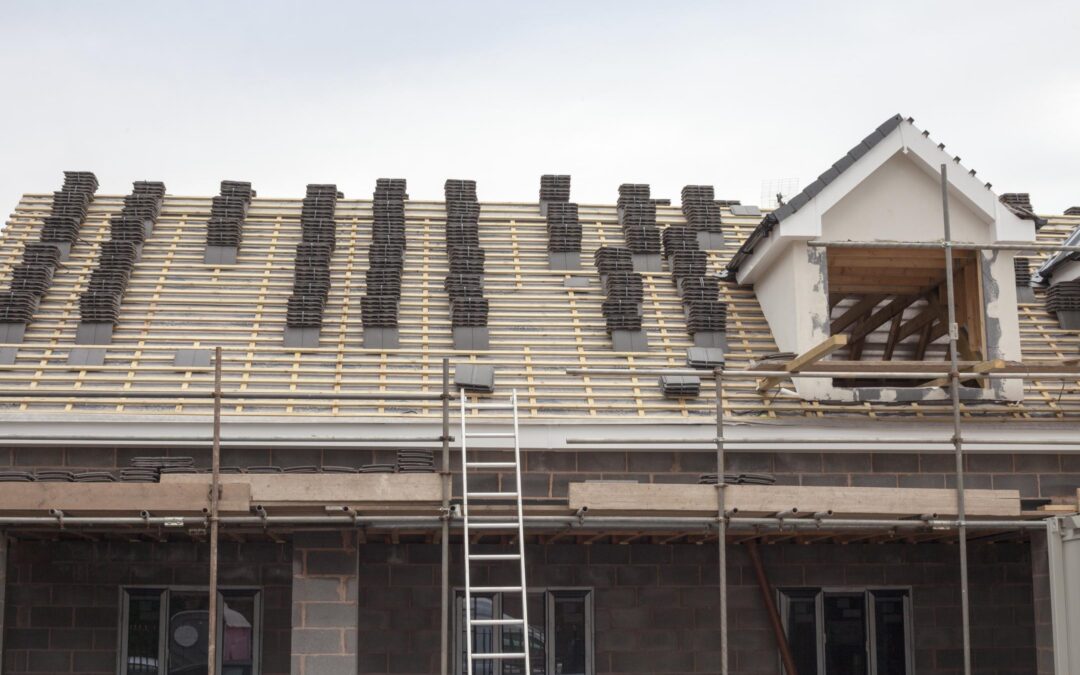
Top Roofers in Lowell, MA: Experts Who Keep You Covered
Introduction
When it comes to protecting your home or business, a sturdy and reliable roof is essential. Finding the best roofers in your area can be a daunting task, but fear not! In this blog post, we will guide you through the top roofers in Lowell, MA. These professionals have earned their reputation for excellence through their quality craftsmanship, industry expertise, and commitment to customer satisfaction. Whether you need a minor repair or a complete roof replacement, these trusted roofers will ensure that you stay covered, rain or shine.
1. Roofing Service Pro’s
Roofing Service Pro’s has been serving the Lowell community for over two decades, earning a solid reputation for their exceptional roofing services. Their team of skilled professionals is well-versed in various roofing materials, including asphalt, metal, and slate. Roofing Service Pro’s is known for their attention to detail, thorough inspections, and precise installations. They provide comprehensive roofing solutions, from repairs and maintenance to full roof replacements. With a commitment to quality and customer service, Roofing Service Pro’s is a top choice for any roofing project. see map below.
2. Express Roofing Inc.
Express Roofing Inc is a business with a passion for delivering top-notch roofing services. With years of experience, they offer a wide range of solutions tailored to meet the unique needs of each client. Whether you have a residential or commercial property, Express Roofing will work closely with you to understand your requirements and provide personalized recommendations. From roof repairs and leak detection to new roof installations, their team of skilled roofers ensures that every project is completed with precision and professionalism.
3. Old School Group
Old School Roofing has been a trusted name in the roofing industry in Lowell, MA for more than three decades. They specialize in both residential and commercial roofing, offering a comprehensive array of services. Old School Group prides itself on using high-quality materials and employing experienced craftsmen to deliver outstanding results. Their team is knowledgeable about the latest roofing technologies and techniques, ensuring that your roof is not only durable but also aesthetically pleasing. With a strong emphasis on customer satisfaction, Old School Group is a reliable choice for any roofing project.
4. Senco Home Services
Senco Home Services is known for their exceptional workmanship and dedication to client satisfaction. Their team of skilled roofers possesses the expertise to handle various roofing projects, including repairs, replacements, and installations. Senco Home Services takes pride in their attention to detail, ensuring that every aspect of your roof is thoroughly inspected and addressed. From the initial consultation to the final cleanup, they prioritize open communication, transparency, and delivering quality results that exceed expectations.
5. Twin Metals Roofing
Twin Metals Roofing has been serving the Lowell area for over 5 years, offering reliable and affordable roofing solutions. Their experienced roofers are equipped to handle a wide range of projects, from minor repairs to complete roof installations. Twin Metals Roofing focuses on delivering exceptional craftsmanship while using top-quality materials to ensure the longevity and durability of your roof. With their strong commitment to customer satisfaction, they have earned a reputation as one of the leading roofers in Lowell, MA.
Conclusion
Protecting your home or business starts with a reliable roof, and the top roofers in Lowell, MA are committed to providing exceptional services that stand the test of time. Whether you need a minor repair, routine maintenance, or a full roof replacement, these professionals have the expertise and experience to deliver outstanding results. By choosing one of these trusted roofers, you can rest assured that your property will be well-protected and your roofing project will be handled with the utmost care and professionalism. Don’t compromise when it comes to your roof—choose from the best roofers in Lowell, MA and enjoy peace of mind for years to come.
How To Choose A Roofing Contractor
The selection of a roofing contractor is an important decision. It requires careful consideration and research to ensure the quality of work meets expectations. This article will guide how to choose a roofing contractor, outlining the critical criteria that must be considered to make an informed choice.
When selecting a roofing contractor, it is essential to consider their experience in residential and commercial projects and their knowledge of local building codes. Furthermore, one should also assess the level of customer service the contractors provided, including prompt responses to inquiries and assistance with any queries or problems during and after project completion.
It is also recommended that potential customers ask for references from previous clients who have used the services of the chosen contractor. Additionally, checking online review sites can provide additional insight into customer satisfaction levels associated with particular contractors. By taking these steps before making a final decision, customers can rest assured they are choosing a reputable and experienced contractor capable of delivering high-quality results per all relevant regulations.
Benefits Of Roof Replacement
A house’s roof is like an empire’s foundation – it must be robust, secure, and reliable. Several benefits should be considered when considering whether to replace your current roof. Firstly, a new roof can improve the value of your home significantly. A newer, better-looking roof will increase curb appeal and make potential buyers more likely to consider purchasing your property. Secondly, replacing an old or damaged roof can reduce energy costs by providing higher insulation than older materials such as asphalt shingles.
This means less money is spent on heating and cooling bills throughout the year. Thirdly, when you use quality materials for a new roof installation, it could last up to 40 years without needing repair or replacement in many cases. Finally, access to various colors and styles gives homeowners a choice over how their roofs look from inside and out; this allows them to customize their homes according to their tastes while maintaining strength and durability. With these advantages in mind, it is clear why so many people choose to upgrade their existing roofs with new ones each year. Establishing the need for professional services is just as important as understanding what makes a suitable roof replacement beneficial; both aspects must be considered before deciding who should handle the job.
Establishing Need For Professional Services
It is important to establish the need for professional roofing services before deciding which contractor to hire. A qualified roofer can assess the project, identify any potential problems and provide a cost-effective solution that meets local building codes and regulations.
When considering hiring a roofing contractor, it is essential to evaluate their qualifications:
-
- Referrals: Ask friends or family members who have recently had work done on their roofs if they would recommend the contractor. Additionally, search online reviews of past client’s experiences with the company.
- Licensing & Insurance: Verify that the contractor has all necessary licenses and insurance coverage. This ensures protection against financial loss due to accidental property damage while onsite at your home.
- Experience: Make sure that the roofer you choose has experience in installing/repairing roofs similar to yours (e.g., shingle vs. metal). It’s also helpful to inquire about their training and certifications within the industry.
Understanding these qualifications helps ensure you get quality work from experienced professionals who understand local building codes and regulations in your area. Additionally, it gives homeowners peace of mind knowing that their investment will last for many years without costly repairs. Finally, this knowledge lets homeowners decide when to select a reliable roofing contractor. Transition into the following section: Knowing local building codes and regulations is key for ensuring safe installations, long-term structural integrity, and compliance with city ordinances.
Knowing Local Building Codes And Regulations
Before choosing a roofing contractor, one must know local building codes and regulations. Understanding these requirements helps ensure the job will be done correctly and according to the code. As the saying goes, a stitch in time saves nine. Being informed on local laws can save homeowners from costly mistakes. Much like an architect designing a house must abide by specific rules, so must any roofer working on top of your home adhere to particular standards.
Therefore, it is essential for any homeowner considering a new roof or repair work to familiarize themselves with their city’s building codes and other relevant information before getting started. This means researching what type of material is allowed for use in construction projects in that area, whether or not permits are required for specific jobs, and understanding general safety measures that should be taken when performing such labor. Doing this groundwork ahead of time allows potential clients to ensure they have all their bases covered before hiring someone for the job.
Researching further into different contractors may also reveal which companies are more likely to observe applicable industry guidelines during installation and repairs. It could be beneficial to look at reviews online or ask family members who’ve had similar experiences if they know anyone reliable they would recommend. Additionally, numerous databases are available containing licensing details about businesses located within particular areas – ensuring whoever you choose has been verified and approved by the necessary authorities.
Taking the proper steps upfront will help avoid unnecessary complications later on, allowing homeowners peace of mind knowing that their chosen contractor meets established standards and protocols set forth by governing bodies regarding roofing services in their region. With knowledge comes power – armed with proper research beforehand, those looking into obtaining quality roofers can move forward confidently toward finding the best fit for them.
Researching Contractor Qualifications
Researching qualifications is a crucial step when selecting a roofing contractor. The first resource to consider is the applicable licensing requirements in your state or municipality. Licensing usually requires contractors to have certain levels of experience and training, which can help homeowners ensure that the roofer they are hiring has adequate credentials for the job. Additionally, asking contractors about their insurance coverage is critical, as this will protect both parties if any accidents occur while working on the roof.
The next thing to research is references from past clients. Ask potential contractors for contact information of previous customers who were satisfied with their services. Contact these individuals and inquire about the quality of workmanship, whether the project was completed on time, and how communication was handled during construction. Other pertinent details related to their experience with the contractor. This feedback should help you determine if a particular contractor’s skill set matches what you need to be done on your home’s roof.
It is also essential to check out online reviews from prior customers and industry groups such as Better Business Bureau (BBB). These sources can provide insights into customer satisfaction ratings and complaints against contractors. Furthermore, many states offer consumer protection websites where prospective customers can search for licensed providers and read up on any violations or disciplinary actions taken against them in recent years.
Finally, verify that all appropriate permits and inspections are obtained adequately before beginning work on your roof. A reputable contractor should be able to show proof that local codes about structural integrity and safety standards have been met whenever necessary. With all this data collected, homeowners can move forward confidently, knowing they have chosen a qualified professional for their project needs. Taking into account written and cost estimates become key in making an informed decision when selecting a roofing contractor.
Obtaining Written Estimates And Cost Estimates
Choosing a roofing contractor for your home is an important decision. It’s essential to make sure the contractor can provide quality services and materials, as well as meet deadlines in accordance with the project scope. As part of the process, obtaining written estimates and cost estimates from multiple contractors should be done before making any final decisions.
| Estimate Requests | Benefits |
|---|---|
| Written Estimates | Evaluate Contractors |
| Cost Estimates | Compare Prices |
When requesting quotes from potential contractors, including detailed information regarding the scope of work needed and desired results is important. Asking for this information upfront will help you compare bids more effectively and allow each bidder to accurately estimate the costs associated with completing the project. The written estimates should include a list of materials used, labor hours required, and other related expenses that may arise during the completion of the job. Additionally, some contractors may offer warranties on their products or labor if requested beforehand.
In addition to written estimates, obtaining cost estimates from different vendors during this stage is beneficial to evaluate which one offers the best value for money spent. This includes researching prices for building materials such as shingles or tiles and installation fees charged by local companies in your area. When comparing these figures alongside those included in written estimates provided by prospective contractors, you can better understand who offers competitive pricing for similar projects.
After gathering all necessary information and verifying that each bidder meets basic requirements, such as being licensed and insured, homeowners are ready to assess insurance coverage offered by potential roofers before signing any contracts or agreements.
Verifying Insurance Coverage
Verifying that the roofing contractor has adequate insurance coverage for any job is important. Verifying a contractor’s insurance can provide peace of mind that any potential claims from damages or injuries will be covered. There are three key elements one should consider when verifying a roofer’s insurance:
-
- Liability Insurance – This type of policy covers bodily injury and property damage for which you may become liable as the result of negligence during your work activities.
- Workers’ Compensation Insurance – This protects employees if they sustain an injury while on the job, and provides benefits including medical care, lost wages, and rehabilitation costs associated with their injury.
- Vehicle Coverage – If the contractor uses vehicles in his business operations, there needs to be proof of vehicle coverage such as comprehensive auto liability policies covering all company-owned vehicles, leased vehicles and hired non-owned autos used in conducting business activities.
In addition to providing financial protection against accidents resulting from poor craftsmanship or other mishaps, this verification ensures that the contracting firm has met all legal requirements before engaging them for services. A careful review of these documents will go a long way toward protecting yourself from unnecessary expenses down the road due to uninsured losses or liabilities resulting from inadequate insurance coverage provided by the contractor. To ensure your project runs smoothly, it is essential to explore warranty options before beginning work on your roofing project.
Exploring Warranty Options
When selecting a roofing contractor, one of the most important considerations is understanding their warranty offerings. Roofs are an investment that should last for many years if properly installed and maintained; warranties can provide peace of mind in knowing that you’re protected against any potential issues that may arise.
Understanding what type of warranty coverage your roofing contractor provides will help ensure that your roof lasts as long as possible without any major surprises. Generally, there are three types of roof warranties: manufacturer-backed, labor/installer-backed, and combination warranties. Each type offers unique advantages and disadvantages, which must be weighed when deciding on the best option for your home or business.
| Warranty Type | Advantages | Disadvantages |
|---|---|---|
| Manufacturer | Repairs covered by product provider | Does not cover installation errors |
| Labor/Installer | Covers installation errors | Excludes repairs related to manufacturing defects |
| Combination | Comprehensive coverage | Costly & exclusions may still apply |
It’s important to understand the terms and conditions of each warranty before signing any contracts with a roofing contractor. For example, some warranties require regular maintenance checks, while others don’t have such stipulations. It’s also important to consider how long the warranty period is and whether a deductible fee is associated with filing a claim under the warranty agreement. Lastly, make sure that all parties involved in providing the service—including subcontractors if applicable—are included in the final contract document, so they’re held accountable if something goes wrong with the project down the line.
The excellent warranty can give property owners added assurance during their next roofing project; however, it’s essential to get educated about each type before deciding which one is best for their situation. Ensuring all details are understood upfront will go a long way toward ensuring satisfaction with your new roof throughout its lifetime.
Understanding Payment Terms
It is estimated that over two-thirds of roofing contractors require payment upfront before beginning a job.1 This statistic underscores the importance of being aware of how you will pay for your project when choosing a roofing contractor. The payment terms may vary, depending on the type and size of the job; here are some considerations to keep in mind:
- Paying with cash or check can be beneficial as it avoids extra fees that come with credit card payments.
- If financing options are available, compare rates from different lenders to make sure you get the best deal possible.
- Ask about any discounts offered by the contractor for paying early or in full at time of completion.
- Make sure there is an itemized bill detailing all materials used so there are no surprises later on down the road.
In addition to understanding what payment methods are accepted, homeowners should inquire about timelines for completion and review cancellation policies prior to signing a contract. Doing this due diligence ahead of time helps ensure both parties’ expectations are met throughout the duration of their project – especially where cost is concerned. When determining turnaround times, ask questions like ‘How long will it take?’ and ‘Can I expect regular updates during construction?’ These questions provide insight into how organized and reliable a particular contractor may be and help guide your decision making process when selecting one who meets your needs most effectively.
Determining Turnaround Time
When choosing a roofing contractor, it is important to consider the turnaround time for projects. Depending on the size and complexity of the job, this could mean anything from days to months. To help ensure that deadlines are met and expectations are exceeded, customers should ask potential contractors about their average project timeline.
| Project Type | Average Timeframe |
|---|---|
| Roof Repair or Replacement (small) | 5-10 Days |
| Roof Repair or Replacement (large) | 1-2 Months |
| New Construction Builds (single family home) | 2-3 Months |
| New Construction Builds (commercial buildings) | 6+ Months |
In addition to asking questions related to timelines, customers should also inquire about any additional services the contractor offers, such as gutter installation and maintenance or deck construction. It may be beneficial to hire a comprehensive service provider who can manage all aspects of a customer’s roofing needs in one place rather than having multiple vendors work on different project components. This could save both time and money in the long run.
Customers need to know what type of timeframe they need when selecting a roofing contractor to ensure their project will be completed within their desired parameters. With careful research upfront, customers can rest assured knowing that their chosen contractor has the expertise to meet their goals successfully. Making these inquiries upfront helps avoid unexpected delays down the line. In addition, considering specialty services further assures that the right choice is created for each individual’s needs.
Considering Specialty Services
The theory that the best roofing contractors offer specialty services may hold some truth. When looking for a roofer, it is important to consider their unique offerings. Specialty services can include additional items such as skylights, ventilation systems, and radiant barriers – all of which help maximize energy efficiency while preventing structural damage from moisture or extreme temperatures. Additionally, some companies have access to specialized tools and techniques only available to some other contractors. These features can make them more capable of handling challenging issues like steeply pitched roofs or complex renovations.
One should ask questions about their experience in specific areas to see if a company offers any specialties. It is also helpful to read reviews on third-party websites and compare quotes before making a final decision. Furthermore, check with your local building department or homeowners’ association to get an idea of the type of work covered by various contractors in your area. Finally, certain types of projects may require permits or inspections before completion, so this step will ensure everything is done correctly from start to finish.
When researching potential roofers, it’s important to look at their core capabilities and specialty services offered. In addition, a reputable contractor should be able to show proof of insurance coverage and licensing information when asked. This helps protect customers against costly repairs due to negligence or shoddy craftsmanship. Also, investigate how long they have been in business since experienced companies tend to know more about industry standards than newer ones.
Finally, another aspect worth considering is whether the contractor provides warranties for their workmanship and parts used during installation. Warranties give consumers peace of mind knowing that any problems encountered after job completion will be addressed quickly without any out-of-pocket expenses they incur later. Taking these steps now can save time and money in the future when selecting a qualified roofing contractor for your project needs. With proper research into specialty services available, one can find the perfect fit for their particular situation and enjoy many years of worry-free use from their new roofing system. Moving forward, assessing the communication style between yourself and prospective contractors becomes essential for success when discussing details related to the job itself.
Assessing Communication Style
When selecting a roofing contractor, it is important to assess their communication style. A good roofer should communicate clearly and efficiently with the customer throughout the project. Suppose a roofer does not communicate well or fails to provide timely updates during each stage of progress. In that case, this may indicate that they are not organized enough for the job.
Determining if the contractor will be available when needed is also important. The customer should feel comfortable contacting them anytime and receive an immediate response. This can help ensure that all questions and concerns are addressed as soon as possible, which helps keep everyone on track and informed about their project’s progress.
In addition, customers should ask potential contractors how often they plan to inspect the work site throughout the process and after completion. Regular inspections can help identify any issues early on before they become major problems down the line. Any reputable contractor should have no problem providing detailed information regarding their inspection schedule before signing any documents or contracts.
Finally, customers should inquire about the prospective contractor’s preferred communication methods. For example, some prefer email correspondence, while others might only accept phone calls or text messages. Knowing what type of contact works best for both parties can lead to smoother operations once construction begins. Examining past work samples is another crucial factor when choosing a roofing contractor.
Examining Past Work Samples
When seeking a roofing contractor, examining past work samples to determine service quality is important. This can be done by requesting photographs or videos of finished projects from the contractor and any subcontractors they may use. Additionally, when visiting current job sites, pay close attention to details such as how quickly the project has been completed and if any areas need additional work.
It is also beneficial to inquire about the type of materials used for a particular job and any safety precautions taken during installation. An experienced roofer will know different types of roofing systems and be able to explain options that best fit your needs. Finally, inquire about warranties offered on labor and materials because this could save you money in the long run, should repairs become necessary.
Another way to assess a potential contractor’s skillset is by asking them questions regarding their level of experience working with particular materials or techniques. By doing so, one can understand whether or not the provider is up-to-date on modern technology and trends within the industry. In addition, knowing ahead of time what kind of services are available can help make an informed decision when selecting a professional roofing company.
Lastly, ask for references to hear firsthand accounts from customers who have worked with the contractor before deciding which works best for you. Transition into the next section: Checking references and reviews can further validate that a prospective roofing contractor meets all qualifications required for satisfactory job completion.
Checking References And Reviews
Researching references and reviews are crucial to selecting the right roofing contractor. Reputable companies will provide customers with references, including contact information for past customers who can attest to their quality workmanship. Reviews from third-party review sites like Yelp or Angie’s List may also be beneficial in determining how reliable the contractor is. Additionally, checking online forums and discussion boards can help gauge customer satisfaction levels and any problems that have occurred previously.
It’s essential to obtain detailed information from referrals and reviews when considering a potential contractor. Ask questions about their experience with the company, such as if they were happy with the results if there were any delays or unexpected costs, and whether they would recommend them. In addition, look into details such as whether the project was completed on time if it met all safety standards and local building codes, and if warranties were provided after completion. All this information gives you an idea of what type of service you expect from them.
Furthermore, consider asking contractors for proof of insurance coverage before signing any contracts or agreements to protect you if something goes wrong during the job. Professional liability policies cover mistakes employees make while working on your property. In contrast, general liability protects against damages caused to personal property due to negligence. Comprehensive insurance helps protect yourself financially and provides reassurance that your chosen contractor takes responsibility for the services rendered.
Doing thorough research into possible contractors through reviewing references and ratings allows homeowners to make more informed decisions overall; it is essential to ensure good workmanship throughout one’s entire home improvement project without compromising quality. With this knowledge, it is now time to move on to securing contracts and agreements that clearly outline expectations between homeowner and contractor before beginning a project together.
Securing Contracts And Agreements
Once a suitable roofing contractor has been identified, securing the necessary contracts and agreements is time. All parties involved must have a clear understanding of the services being offered, as well as any associated costs. A few key elements should be included in these contractual documents:
- A detailed description of the work to be performed
- An estimated timeline for completion
- A clause outlining any potential additional charges or fees
- Any warranties or guarantees provided by the contractor
- The procedures for dispute resolution if needed
Reading through each contract carefully and ensuring all expectations are clearly outlined before signing on the dotted line is essential. Homeowners should also ask questions about anything that the agreement may not explicitly state. Hence, there are no surprises when it comes time for payment. Furthermore, insurance coverage must be verified with both parties agreeing on which damages will be covered before starting any work. Doing due diligence at this stage can save homeowners from costly repairs later. Additionally, it is imperative to document any changes made during construction that were not initially specified to protect one’s legal rights in the future. As such, having proper documentation is essential in ensuring satisfaction with final results.
Evaluating Final Results
Evaluating the quality of a roofing contractor’s work is like taking a snapshot in time. The finished product may look great today but what about tomorrow? Several things should be evaluated to determine if you have made the right choice.
Firstly, check the materials used. Are they up-to-date and compliant with industry standards? Ensuring that your contractor has taken the proper steps when selecting products for the job is crucial. Secondly, review the craftsmanship on display. Was each step done correctly, and was attention paid to detail throughout? Even minor mistakes can lead to costly repairs, so this provides an excellent opportunity to double-check their work before signing off on it.
Next, ask questions about ongoing maintenance needs. A well-installed roof will require very little upkeep over its lifetime; however, knowing ahead of time what type of regular inspection schedule or cleaning routine will be necessary can help you plan accordingly for future costs associated with keeping your roof in top condition for years to come. Lastly, find out whether or not the contractor offers any warranties on labor or materials used in case something goes wrong at some point in the future. This gives added peace of mind that your investment is protected against unforeseen circumstances which could occur after the completion of the project.
Ultimately, choosing a reliable roofing contractor requires doing homework upfront and verifying results upon completion of the job – ensuring both safety and satisfaction as you protect one of your most valuable investments: your home.
Frequently Asked Questions
How Long Have You Been In Business?
Choosing the right roofing contractor is essential in ensuring that a job is done correctly and efficiently. When selecting a roofing contractor, one of the critical questions is, how long have they been in business? This question can be used as a general indicator of experience and reliability.
Experience matters greatly regarding roofing contractors; one should select a company with enough experience for the specific job. Contractors who have only recently established their businesses may need more skills or equipment for certain projects. Companies that have been in operation for longer than five years are more likely to have adequate resources and well-trained personnel on staff.
In addition, companies with longevity tend to have higher customer satisfaction ratings due to their commitment to quality workmanship over time. They also typically offer warranties or guarantees on their services so customers can feel confident about investing in such an investment. It’s also worth asking potential contractors if they carry liability insurance, protecting them from any legal claims resulting from accidents during roofing jobs.
Lastly, many experienced roofers will provide additional services beyond installation, such as maintenance and repair programs tailored to each client’s needs. These extra services add value by protecting roofs against future issues that could cause costly damage. Asking these questions before selecting ensures that you receive top-notch service from your chosen contractor while minimizing the risk associated with hiring someone new to the industry.
Are You Licensed And Insured?
When selecting a roofing contractor, it is important to ensure they are licensed and insured. A qualified roofer should have the proper licensing and insurance to protect the customer and themselves from potential problems during a project.
Licensing requirements vary by state; however, most require contractors to take an exam or demonstrate knowledge of the building codes for construction projects in the area. In addition, many states require roofers to carry liability insurance and workers’ compensation insurance in case any accidents occur while on the job site. This ensures that all parties involved are protected if something unexpected happens.
It is also wise to ask for proof of their license and insurance policy before hiring a contractor. Requesting copies of these documents allows customers to verify that they are legitimate business owners with adequate coverage. Additionally, asking questions about how long they have been in business can provide insight into their experience level and expertise when working on roofs.
With this information readily available before making a decision, customers can make informed decisions easily regarding which contractor best meets their needs. In addition, customers should feel confident knowing that licenses and insurance policies will help mitigate risk factors associated with contracting work on one’s home or office building.
How Do You Handle Unexpected Damages Or Repairs?
When it comes to roofing contractors, the unexpected can often arise. It is essential that homeowners ask how a contractor manages unanticipated repairs and damages before hiring them for the job. Selecting a reliable roofer with an established history of addressing issues promptly and professionally will ensure peace of mind throughout the entire process. Here are some key points to consider when assessing prospective contractors:
- Research customer reviews: Dig into past customers’ experiences to determine if there have been any reported problems with damage or repair work.
- Ask about guarantees: Inquire what type of warranty they offer on their services; this serves as additional protection should something go wrong down the road.
- Verify insurance coverage: Make sure the company carries comprehensive liability insurance so you know you won’t be held responsible in case of any unforeseen accidents or damage.
- Gauge responsiveness: Pay close attention to how quickly they respond to your inquiries and questions – timely responses can indicate a reputable business that stands behind its workmanship.
A quality roofing contractor will understand and proactively address these concerns during the initial conversation. In addition, they should demonstrate knowledge regarding various types of warranties offered, provide proof of current insurance coverage, and be available for follow-ups after the installation. A level of professionalism is also important – beyond being punctual, friendly, and communicative, experienced contractors take pride in upholding industry standards like proper safety protocols while working at height. All factors considered, choosing a professional who takes responsibility seriously should give homeowners confidence knowing their project is in good hands from start to finish.
What Materials Do You Use For Roofing?
When looking for a roofing contractor, one of the most important considerations is the materials used. Different roofs have different needs, and choosing the suitable material can make all the difference in longevity and performance. The two primary types of materials are asphalt shingles and metal.
Asphalt shingle roofs are among the most popular in North America due to their affordability and durability. Asphalt shingles come in various styles, textures, and colors, making them easy to customize according to individual preferences. They also require relatively little maintenance compared to other materials, such as wood or slate. However, they may not be suitable for certain climates with high wind speeds or heavy snowfall.
Metal is another option that has become increasingly popular over the years due to its superior durability and resistance against extreme weather conditions such as hail storms or hurricanes. In addition, metal roofs often last longer than asphalt shingle roofs, making them an ideal choice for homeowners who want long-term protection from severe weather conditions without regularly maintaining their roofs throughout their lifetime. Metal roofs are also energy efficient since they reflect heat away from your home during summer and retain warmth during winter, resulting in lower heating bills year-round.
It’s essential to consider both cost and quality when selecting a roofing contractor and understand what type of material will work best for your particular climate and budget requirements before making any decisions. A reputable roofer should be able to explain each option clearly so you can determine which material is suitable for your home’s specific needs.
What Is The Estimated Duration Of The Project?
The estimated duration of a roofing project is an essential factor to consider when selecting a contractor. This timeline will depend on the size and scope of the job, as well as the availability of materials and labor. It is essential for contractors to accurately estimate the time it will take to complete each step to ensure that all work is completed within the designated timeframe. A reliable contractor should be able to provide you with an accurate timeframe based on their years of experience in similar projects.
In addition to estimating how long a project will take, other factors, such as weather conditions or access issues, may affect the time required for completion. Your chosen contractor should be aware of any potential delays before commencing work and include contingencies in their estimates to remain flexible if needed. An experienced contractor should always strive to meet deadlines and prioritize safety over speed when necessary.
Another critical factor affecting the duration of a roofing project is material selection. Different materials have other lead times that need to be considered during planning stages; this includes shingle type, ventilation systems, flashing, etc. The roof design also influences lead times depending on complexity; some designs require more intricate installation processes than others, making them more labor-intensive and, thus, longer, lasting projects. Therefore, your chosen contractor must consider these details before beginning work to avoid any unexpected delays or costs later down the line.
When choosing a roofing contractor, ask questions such as ‘How much experience do you have?’, ‘What kind of warranty do you offer?’ and ‘Can I see examples from past jobs?’. Most importantly, however, ensure you get an honest assessment about how long it will likely take for them to complete your specific project on time. Within budget – this way, you’ll know exactly what you’re getting yourself into upfront without any nasty surprises further down the line!
Conclusion
The decision to hire a roofing contractor is an important one that should not be taken lightly. Choosing the right contractor for the job is essential to receive quality workmanship and ensure your safety during installation or repairs. When selecting a roofing contractor, it is best to consider numerous factors such as how long they have been in business, their licensing and insurance information, procedures for unexpected damages or repairs, what materials they use, and the estimated project duration.
In the United States alone, over 11 billion dollars are spent on roofing each year1. This statistic highlights homeowners’ emphasis on finding reliable professionals capable of providing top-notch workmanship at a reasonable cost. To achieve this goal, homeowners must do their due diligence by researching potential contractors thoroughly before making any commitments.
When considering who to hire for your roofing needs, remember these key points:
- Always ask about experience levels and check out licenses/insurance policies.
- Inquire about procedures for handling unforeseen issues.
- Review material choices.
- Obtain accurate estimates regarding project lengths.
Take these steps before signing any contracts with a roofing company. You can rest assured knowing that you have chosen someone trustworthy and qualified to safely complete the job with precision results.
1 https://www.statista.com/statistics/189925/roof-systems-market-value-in-the-us/ 2 Research the company and its reviews: Check out the company’s website and read any customer reviews or ratings. Ask friends, neighbors, or colleagues for their experiences with the company.
Why Does My Air Conditioner Need Maintenance?
Your a/c unit is like any other appliance in your home and regular maintenance is key to keeping it running properly. By taking care of your air conditioner, you can improve its efficiency and ensure that it provides quality air for your home. One important part of maintaining your a/c unit is changing the filter regularly. This will help to improve the air quality in your home and keep your a/c unit running smoothly.
What Maintenance Does an Air Conditioner Need?
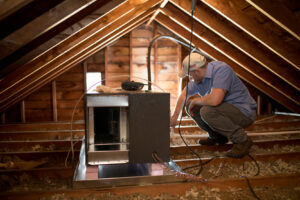 Your air conditioner works hard to keep you cool all summer long says Bryan from Affordable Heat & Air, and it needs a little help from you to keep it running smoothly. These maintenance tips will help prolong the life of your AC unit and keep it working efficiently.
Your air conditioner works hard to keep you cool all summer long says Bryan from Affordable Heat & Air, and it needs a little help from you to keep it running smoothly. These maintenance tips will help prolong the life of your AC unit and keep it working efficiently.
-Change your air filter regularly. A dirty filter will make your AC unit work harder and could lead to a system breakdown.
-Check for leaks and blockages in the airflow. If your unit isn’t getting enough airflow, it won’t work as efficiently.
-Keep the compressor and condenser clean. These parts can get dirty over time, which can make your AC unit work harder than it needs to.
-Make sure the thermostat is set properly. A programmable thermostat can save you money on energy costs, but only if it’s set properly.
What’s Included in Professional Air Conditioning Maintenance?

Most professional air conditioning maintenance services will include a thorough inspection of your HVAC system, including the condensate drain and condensate lines. They will look for any leaks, and check the filter and refrigerant levels. The technician will also test the thermostat and heating and cooling system to make sure they are working properly. If they find any clogs in the compressor or condenser, they will clean them out to prevent future problems.
Annual HVAC Maintenance – Why Is It Important?
HVAC is an important part of any home, and regular maintenance is key to keeping it running smoothly. Annual HVAC maintenance is a great way to ensure that your system is running efficiently and that your air quality is top-notch. Service calls can be expensive, so it’s important to maintain your HVAC system on a regular basis. By doing so, you can avoid costly repairs down the line. Be sure to have your air conditioners serviced every year and keep an eye on your electrical lines – annual HVAC maintenance is worth the investment!
Why is air conditioning service important?

Air conditioning service is important because it helps to keep your HVAC system running smoothly and efficiently. Seasonal starts and preventative maintenance can help ensure your ac unit is working properly and can help to prolong the life of your unit. A qualified technician can help maintain your HVAC system and ensure your ac unit is operating at peak efficiency. Central air conditioning units require regular service and maintenance to prevent costly repairs or replacement.
How Often Is AC Service Needed?
How often is AC service needed?
AC service is typically needed every 1-3 years, depending on the type of air conditioner you have. HVAC technicians recommend having your air conditioners serviced at least once a year to keep them running properly and to avoid costly repairs. AC maintenance is important to extend the life of your air conditioner and keep your home cool and comfortable.
What Does AC Service Include?
AC service typically includes a thorough inspection of the entire AC unit, including the condenser, blower, evaporator, and all connecting duct-work. The technician will check for any clogs in the condensate drain and clean out the condensate pan if necessary. They will also check the airflow through the unit and clean or replace the air filter if needed. Finally, they will check the refrigerant level and recharge the system if necessary. If they find any leaks, they will repair them before finishing up.
What’s the Best Time of Year to Service Your A/C Unit?

The best time to service your A/C unit is typically in the spring or fall, when regular maintenance is typically performed. However, if you notice that your A/C unit isn’t working as efficiently as it should be, you may want to consider scheduling a service appointment.
What Should an A/C Check-Up Include?
An A/C check-up should include a check of the coil, condenser, blower, thermostat, and condensate drain. The refrigerant level should also be checked, and the system should be serviced if necessary.
How Much Money Can Proper HVAC Maintenance Save?
HVAC maintenance can save you a lot of money in the long run. By keeping your HVAC system well-maintained, you can avoid costly repairs and replacements. A properly maintained cooling system can also help improve your home’s energy efficiency, which can save you money on your energy bills.
Next Month we are writing about
North River Builders Inc
Triple R Disposal
Delarosa Roofing
Index Me

How To Prevent Roofing Issues During Cold Weather
Roofs are particularly vulnerable during the winter months. When water on your roof freezes, it may do significant damage to the structural integrity of your house or commercial facility. There are various steps you can take to safeguard your roof from the effects of winter weather. It is essential to understand the most prevalent cold weather roofing problems and how to avoid them properly, maintain your property, and prevent roof leaks.
Leaks:
The presence of leaks is a regular occurrence, particularly on older roofs. However, you can prevent leaks from occurring on your roof regardless of whether it is brand new or decades old. Several winter concerns may result in leaks – and numerous things you can do to keep your roof from leaking.
Flashing Deterioration:
Leaks are particularly prevalent in the areas around vents and chimneys, with numerous gaps and fractures. When it comes to these locations, the roof is covered by little pieces of metal called flashing. Proper flashing installation is crucial since the improper installation will result in leaks that continue to increase over time.
How to avoid:
One method of preventing roof leaks is to inspect the flashing at the beginning of each season to verify that it is adequately sealed and sealed tight says Tony from Old School Group. Even correctly constructed flashing will begin to deteriorate with time, making regular inspections of your roof even more critical as your roof grows older and more complex. In the fall, inspect your roof with your roofing contractor before the winter snow and freezing rain arrive on the scene. For your roofing contractor to check and repair the flashing, you’ll need to give him plenty of time.
Ice Dams:
We have our fair share of ice in Massachusetts, even though it is not typically snowy (with the occasional snowfall). An ice dam is an issue that happens when hot spots in the attic allow the higher portions of an iced roof to melt while the lower parts of the roof continue to be frozen. Melting ice and snow from the higher region of the roof travels down to the cooler, lower sections of the roof, where it re-freezes, resulting in ice buildup in the gutters and downspouts.
Eventually, the ice builds up behind the shingles and seeps through the sheathing beneath the roof. As water collects behind the dam, it is more likely to seep into your home through fractures and fissures in the roofing material, causing significant structural damage.
How to avoid:
It is a complex topic since several elements might contribute to forming an ice dam. For example, poor ventilation and insulation in the attic can result in “hot spots” (pockets of warmer air in the upper areas of the attic), which can provide the ideal circumstances for forming an ice dam in the roof of the house.
The formation of icicles identifies ice dams in the gutters in the presence of leaks inside your home. Make an appointment with your roofing contractor to correct your insulation and ventilation to avoid future ice jams. If you suffer an ice dam in your house, it is crucial to repair the leak as quickly as possible to avoid more damage.
Icicles:
Icicles are another issue that can arise on rooftops during the winter months. Icicles are a severe threat to both people and pets; gutter and downspout clogs are the most common cause of these problems. In addition, their enormous weight might cause damage to the roof and gutter system.
To eliminate icicles in your gutter, you should schedule frequent gutter cleaning and gutter inspections to ensure that rainwater can escape from your roof as quickly as possible.
Tree limbs may be a threat, especially if you live in an area where high winds are prevalent. If you have mature trees on your property with overhanging branches, your home may be in danger of being destroyed. In addition, broken tree branches can cause damage to the structure of your roof, or perhaps your entire house, if they fall on it.
How to avoid:
Trimming any branches within six feet of your roof is the most effective approach to protect it from falling tree limbs. Trees that are hanging over your roof should be pruned back. For this undertaking, it is recommended that you get expert assistance. Trimming tree limbs may be pretty dangerous, especially if the stems are substantial and heavy.
Roofing Maintenance in the Commonwealth of Massachusetts
Winter may be a difficult time of year for your roof, but Stroitelstvo provides monthly roof maintenance to provide your peace of mind throughout the season. Please call us for an inspection if you would like to learn more about how you can protect your roof from damage this winter. Also, if you have a leaking roof, contact us for a free consultation.
Design. Craft. Renew are the three words that come to mind when we think about Stroitelstvo. We have extensive expertise with all sorts of roofing systems and can give our customers the appropriate roofing design and selective craftsmanship to renew their assets. We encourage consumers interested in sustainable building to contact us for a free consultation. Since 1981, Stroitelstvo has installed thousands of square feet of roofing materials throughout the Triangle, including metal, slate, TPO, EPDM, and other types of shingles. Services include residential and commercial construction and unique architectural metal fabrication, and historic repair.

Top 13 Roofing Tips for New Homeowners
First-time home buyers should pay attention to the following roofing advice:
Ownership of your first home may be an excellent and gratifying experience, but it can also be a tremendously stressful one if you don’t do it correctly. Become familiar with the different components of your house and how to keep them in proper working order if you are a new homeowner.
Also necessary will be the knowledge on how to analyze the condition of your house and the ability to discover professionals who are certified to repair or replace various components of your home on your behalf. Unfortunately, these two things are not as simple as they appear on the surface.
We are here to help you with your roofing needs, thanks to Stroitelstvo Roofing Business – the most reputable roofing company in Burke, Virginia. The information in this article will be beneficial to you when it comes to roofing. Roof leaks will be discussed in detail, finding a reliable contractor for your job, and other related issues.
Your roof needs immediate attention, and you must learn how to care for it as soon as possible. When it comes to the structural integrity of your home, the roof is one of the essential components, and if you don’t know what you’re doing, repairing roof problems may be a costly proposition if done incorrectly.
Manny from Delarosa Roofing lays out these 13 tips
1. Hire an expert to do a thorough roof examination.
When you acquire a new home, the first thing you should do is arrange for a professional roof inspection to be completed by a licensed specialist. Each property is thoroughly examined before it is placed on the market, with the home inspector having the option of climbing up on the roof during the examination.
In some cases, a comprehensive and close-up inspection of the roofing system is required to detect a problem. It is possible to develop roof leaks if roofing problems are neglected for a lengthy period. For example, if you fail to address these roof leaks, they will eventually result in expensive water damage to your house and property.
2. Interview with a prospective roofing contractor
Please consult with your potential roofing contractors before making a final selection. First and foremost, ask about your contractor’s documents, such as a license number, before proceeding. In addition, you should interview with your prospective contractor, during which you should inquire about their experience, skills, and credentials, as well as other pertinent information.
Then, at the time of contract signing, a reputable contractor will be prepared and eager to answer any of your questions and address any of your concerns that you may have.
3. Investigate your roofing possibilities and make a decision
It’s possible that as a first-time homeowner, you’re not aware of the myriad options you have when it comes to roofing materials and roof types. To learn more about the goods that roofing experts supply to their consumers, we recommend that you undertake research and chat with roofing professionals.
In addition, you’ll almost certainly need to replace the roof on your house at some point, so you should start planning now. Learn about the several roofing options are accessible to you, as well as the pros and downsides of each type of roof.
4. Establish a regular maintenance routine for your roof
If you’ve found a reliable roofing contractor, we recommend that you engage them to do routine roof maintenance on your home or commercial property. In the long term, preventive treatment may save you a significant amount of money and time.
Early diagnosis and treatment of minor issues will assist you in avoiding the need for costly and time-consuming roof repairs in the future, saving you money and time. In addition, regular maintenance can help extend the life of your roof, enhance its appearance, and increase its capacity to endure bad weather conditions, among other benefits.
5. Inquire with your roofing contractor about the regions of your roof that are more vulnerable to leaks
Contact your roofing contractor and ask them to identify the areas of your roof that are the most vulnerable to damage and leaks. Then, discuss with your contractor the possibility of training you on how to manage these areas properly.
As the area’s leading provider of residential and commercial roofing services, we take great satisfaction in prioritizing the requirements of our clients. Consequently, our clients are always welcome to contact us with inquiries concerning their roofing system, and we are always accessible to answer any questions they may have.
6. Seek references from people in your neighborhood
For your next roofing project, the following recommendations will help you find a trustworthy roofing contractor. Referrals from individuals in your neighborhood are among the most successful methods of finding a reliable contractor to work on your home. Using a local contractor decreases the possibility of meeting issues or being a victim of fraud in the future.
A local contractor is familiar with the laws, rules, and code limitations that are in effect in their particular location. Furthermore, they already have established working relationships with suppliers and local personnel.
7. Look for contractors that have completed accredited training programs
Manufacturer certifications are regarded as a mark of achievement in the roofing industry, where they are awarded to personnel who achieve them. To receive these credentials, a roofing contractor must complete several stringent conditions.
Given that a certified contractor can provide a high level of craftsmanship and customer service, we recommend that you use a competent contractor for your project. Apart from that, a professional roofing contractor may provide you with a broader range of roofing materials to choose from, in addition to more attractive warranty conditions.
8. Obtain a Limited Manufacturer’s Warranty
A warranty should always be requested when hiring someone to conduct roofing work on your house, and you should always ask for one. If you purchase a warranty, you will be covered by any potential liabilities. Mistakes committed during a roof repair or roof installation might present themselves years after the event that caused the error.
You will not be held liable for the faults of your roofing contractor or roofing manufacturer if you make use of a guarantee to protect yourself. A contractor’s qualifications are often considered to be of greater quality when compared to their ability to provide you with assurances.
9. Look at client testimonials that have been posted online
Online testimonials and ratings provide a quick and easy way to evaluate the overall quality of a potential contractor’s services. They are also free. If there are many favorable ratings, it implies that a contractor has done such an exceptional job that customers feel obligated to take the time and effort to express their appreciation.
Unfavorable evaluations suggest the antithesis of what was intended. It is best to avoid contractors who do not have excellent client ratings or are inattentive when responding to customer complaints.
10. Inquire with your contractor about the safety practices that will be followed
Please inquire with your roofing contractor about safety protocols and equipment whenever you’re talking with them about your job. Roofing is a potentially risky activity, which is why trained and licensed professionals should only carry it out. Don’t hesitate to contact your roofing contractor to confirm that they are qualified to perform roof repairs before proceeding.
An individual or company should avoid working with a contractor that does not have the proper equipment or training for the job.
11. Check your contractor’s qualifications to make sure they are legitimate
It would be beneficial to double-check your contractor’s license and insurance credentials. Your roofing contractor must have insurance coverage for all of his employees and subcontractors. If you request one, they should provide you with a copy of their insurance certificate.
To avoid any complications, they should be adequately covered by insurance. Ensure that the contractor provides you with a copy of their license before signing any contracts in your region since permits may be necessary for your jurisdiction. After that, you should verify with the proper authorities to determine if the license is still in good standing.
12. Resist the temptation to give in to high-pressure sales methods
You may have endured storm damage to your property. Keep the following points in mind as you go. First, taking advantage of the fact that you are a first-time homeowner, a dishonest contractor may attempt to push you into signing a contract before your insurance company has evaluated the degree of the damage.
Avoid submitting to high-pressure sales methods at all costs. Contractors that engage in this activity often create substandard work and provide no after-sale service or assistance to the homeowner after the transaction.
13. Work with contractors who offer a wide choice of items to ensure a successful collaboration
Choosing roof colors and patterns will be advantageous if you ever need to replace your roof, so keep this in mind when making your selection. But when it comes to the kind and color of your new roof, the choice you make can influence your house’s aesthetics and market value.
As a result, hiring a knowledgeable roofing contractor that offers a diverse selection of roofing options is a wise decision. If you follow these steps, you will be able to select a beautiful and functional roof for your home and your home renovation needs.
If you want roofing services, our staff at Stroitelstvo is ready to assist you. Local homeowners have relied on us since 2007, and we’re well-known for providing the highest level of service at the most competitive prices.
We always treat our clients with professionalism and respect, and we make every effort to ensure 100% customer satisfaction while also building long-term business relationships. We can assist you if you are experiencing problems with your roof, siding, doors, or windows. Don’t hesitate to get in touch with us. Everything will be taken care of by us.
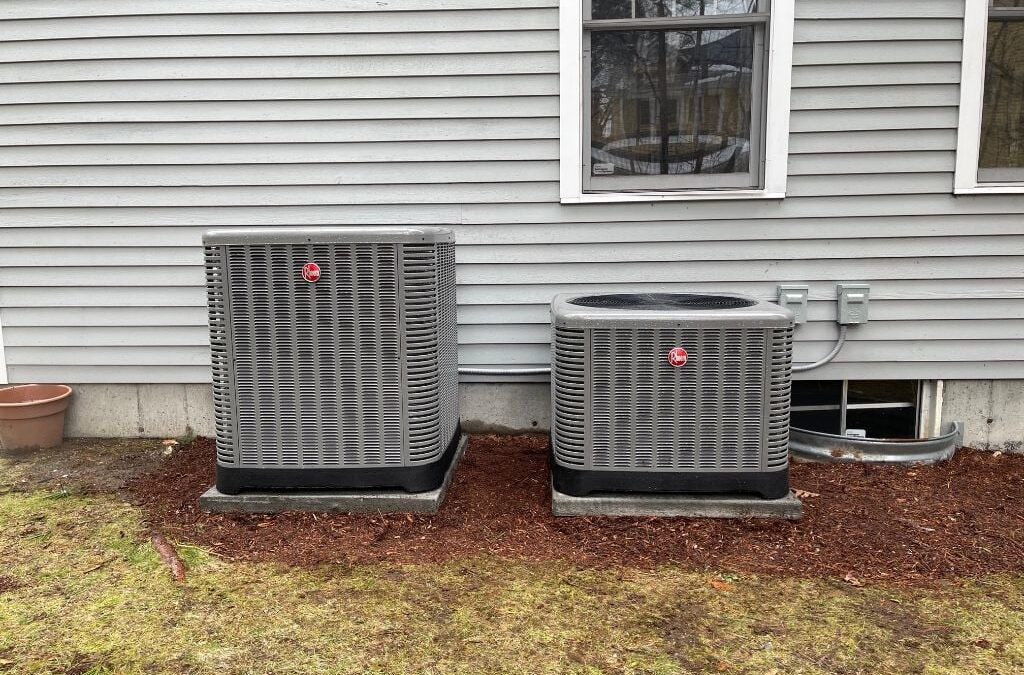
HVAC Maintenance: Questions to Ask Service Providers
There are many things to be put into consideration while purchasing new HVAC equipment.
 Selecting the right service provider ensures that it can get serviced, which is essential for a more extended running air conditioning unit. Knowing how a heating or cooling unit works will be useful to keep a check on its proper functioning. Identifying a set of questions to ask before signing service contracts will help in finalizing a deal perfectly. Since the changing climate conditions give rise to the substantial need for counteracting the living environments and hence the importance of HVAC units are exponentially increasing globally and in SoCal Climate Control Simi Valley. Homes are getting their heating and cooling units to prepare for the climate changes in places that do not have a history of using this equipment even. In case of building a new home, it is crucial to have these units planned into installation along with the construction so that leaks and repairs can be minimized to the least. Do ample research about the service provider to learn about their track records, credentials and reliability all while checking their trustworthiness.
Selecting the right service provider ensures that it can get serviced, which is essential for a more extended running air conditioning unit. Knowing how a heating or cooling unit works will be useful to keep a check on its proper functioning. Identifying a set of questions to ask before signing service contracts will help in finalizing a deal perfectly. Since the changing climate conditions give rise to the substantial need for counteracting the living environments and hence the importance of HVAC units are exponentially increasing globally and in SoCal Climate Control Simi Valley. Homes are getting their heating and cooling units to prepare for the climate changes in places that do not have a history of using this equipment even. In case of building a new home, it is crucial to have these units planned into installation along with the construction so that leaks and repairs can be minimized to the least. Do ample research about the service provider to learn about their track records, credentials and reliability all while checking their trustworthiness.
Among referring to online reviews and local licensing authorities
It is always better to have a conversation with the service providers and clearing the air. One should check how long the business has been running. This gives a deeper understanding of how much they know what they are doing. Check about their insurance and license so that any hazard occurring at the workplace (client’s house) does not incur extra expense to the client. Clients bring the service technicians to their most valued homes replied Wayne from Bonafide Home Inspections, and hence the service providing company must do background checks before hiring their employees. Also, check about the training and certification that the technicians go through so that they know well about the product and brand that they undertake. The next most important question to be cleared is about the guarantee and warranty of the work done, and if there is an issue, how it would be resolved. The client should be aware of all the safety procedures and protocols followed by the company, including how they are planning to keep the floors and household clean while and after their working.
The clients should have a clear idea about the requirements
They have before hiring a service provider and the installation of HVAC units. The key considerations should revolve around a few of the collective thoughts, such as the idea of saving energy. If there are areas at home with temperature issues such as cold spots or hot spots due to constructional problems or due to the arrangement of the outside environment, it is best to discuss with service providers so that they can help mitigate this and plan a better outcome of the HVAC unit. Other problems in the house or residents should be discussed so that the HVAC Service providers can have a better understanding of what they will be working on, plan and adapt accordingly. Lastly, discussion of the budget, features and any special requests need to be made in the initial consultation itself so that the provider can include all of it in the planning phase.

Which Roofing Design is the Most Hurricane Resistant?
Top Roofing Materials That Can Withstand Hurricane
Roofs are the most ignored element of our homes and are ignored. While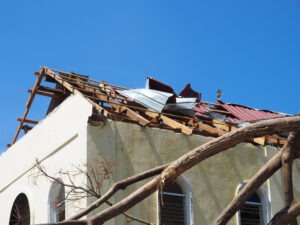 we do a lot to preserve the walls, floors and other interiors, we seldom think of the roofs during maintenance. The roofs bear the brunt of heat, cold, rain, storm and hurricane says Mike from Express Roofing. Roofs take them all without seeking much attention. High quality and sustainable roofs can last long but still, it would require timely maintenance. Roofing replacement can be a big investment. And, in cases of storm and hurricane damages, the expense can be even more. At the construction stage, ensure that you choose a material that can stay in shape even in a hurricane. Let us take a look at some of the best roofing materials that can effectively resist hurricanes.
we do a lot to preserve the walls, floors and other interiors, we seldom think of the roofs during maintenance. The roofs bear the brunt of heat, cold, rain, storm and hurricane says Mike from Express Roofing. Roofs take them all without seeking much attention. High quality and sustainable roofs can last long but still, it would require timely maintenance. Roofing replacement can be a big investment. And, in cases of storm and hurricane damages, the expense can be even more. At the construction stage, ensure that you choose a material that can stay in shape even in a hurricane. Let us take a look at some of the best roofing materials that can effectively resist hurricanes.
Asphalt Shingles And Metal Roofing
It is absolutely important to select the right roofing material that can maintain the safety and structure of the building. If it is a hurricane-prone area, then you should be doubly sure of choosing a roofing material that can bear the fury. Metal roofing is the best material for resisting hurricanes Jeff from JVP Roofing said. Metal roofing provides a warranty against damages caused by category 4 hurricanes. Such hurricanes range from 130 to 156 mph. This type of hurricane causes maximum damage. Metal roofing is more durable than shingle roofs. They also prevent a home from thunderstorms, hail storms and are fire-resistant.
Metal roofs are laid in overlapping panels that are attached to the building. This secures the roof from wind. To enjoy the benefits of metal roofs, you need a professional hand to install them carefully. Asphalt shingles are also resistant to wind and hurricane. New shingles can withstand wind as fast as 130 mph. Shingles roofs are a low maintenance option that can be easily repaired and patched.
New Roof Or Damage Repair?
If you have buckets to collect water all around the house, then it is time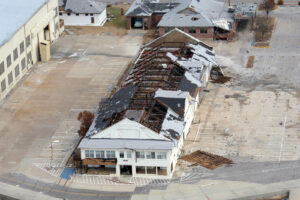 for a roof replacement. You must look for telltale signs that indicate the bad shape of the roof. You will start finding stains and molds on the wall Old School Roofing said. The foundation of the roof or roof deck will sag and start to leak. Signs of damage will be visible clearly. Missing, loose, buckled shingles and shingle granules lying loose in the gutter are some of the signs of roof damage. To make matters worse, you can see daylight through the holes in the roof. If you can take care of these issues before the storm hits, you can to a certain extent avoid re-roofing. Regular inspection of the roof will reveal such issues.
for a roof replacement. You must look for telltale signs that indicate the bad shape of the roof. You will start finding stains and molds on the wall Old School Roofing said. The foundation of the roof or roof deck will sag and start to leak. Signs of damage will be visible clearly. Missing, loose, buckled shingles and shingle granules lying loose in the gutter are some of the signs of roof damage. To make matters worse, you can see daylight through the holes in the roof. If you can take care of these issues before the storm hits, you can to a certain extent avoid re-roofing. Regular inspection of the roof will reveal such issues.
A new roof is a big investment but it reaps a lot of benefits. A new metal or asphalt shingle roof will help maintain the temperature inside the house as there are fewer gaps for fir heat to seep through during the winter season. This will reduce the energy cost. There will not be any molds and pungent smell that can cause respiratory issues and allergy. Good roofing will increase the home value and appeal. See Roofing Service Pros for more info
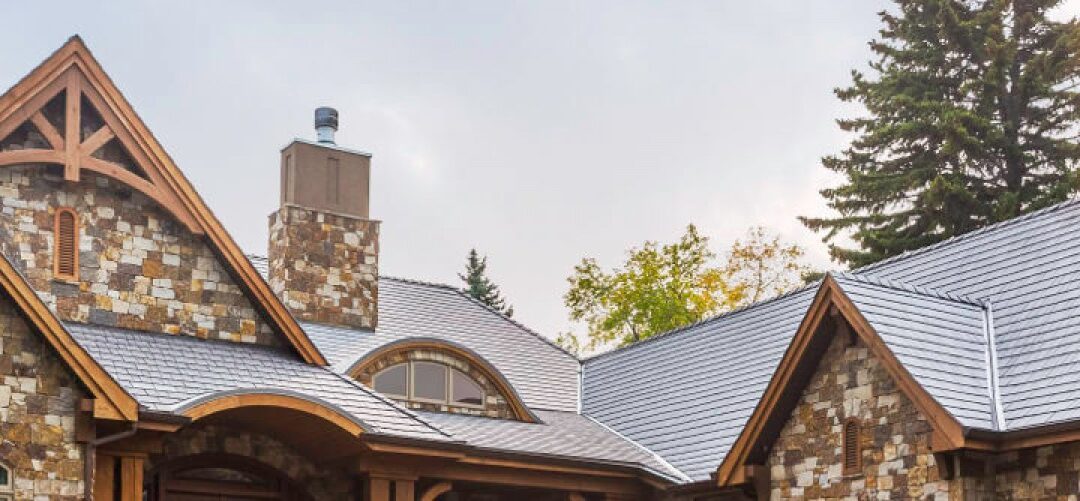
How to Estimate a Roofing Job?
It can be stressful when you have to discuss roofing projects with contractors. As roofs last for years or decades without any repairs, most homeowners are not aware of the exact cost of the job and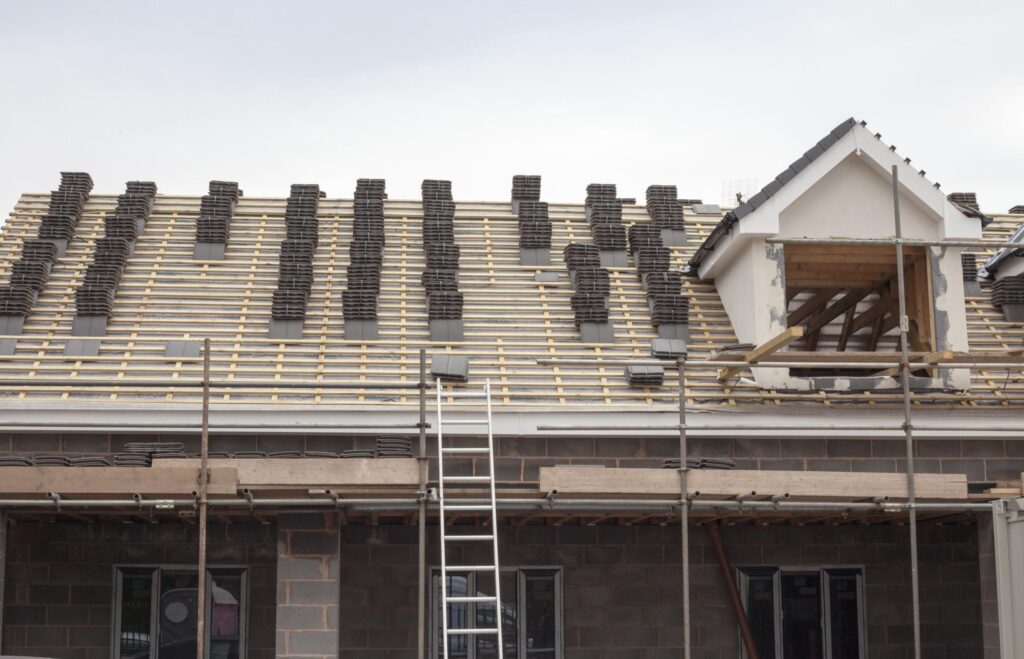 certain important roofing terminology. In this guide, we have shared how to calculate the roofing materials and shingles for your project. This basic guide will assist you to begin budgeting for the project and also makes it simple to evaluate the estimates of the contractor.
certain important roofing terminology. In this guide, we have shared how to calculate the roofing materials and shingles for your project. This basic guide will assist you to begin budgeting for the project and also makes it simple to evaluate the estimates of the contractor.
How to estimate roof shingles?
We asked Jeff from Charlton roofing and this is what he said: One of the most and basic steps involved in estimation is determining the number of shingles you need for calculating the roof’s square footage. It is dangerous to go high on the roof. Our method is based upon evaluating the ground. It is a pretty rough calculation and that would offer you an approximate figure. Remember, you do not have to get scared about the math as it is simple and pretty forward.
To evaluate the roof’s square footage:
- Measure the width and length of the house from outside the home. It is important to measure from point to point and not from corner to corner to estimate the overhang of the roof.
- If your house is not rectangular, you can measure the width and length of each section.
- Now, multiple the width and length of each section. Thus, you can derive the square footage.
- Now total the entire square footage’s to obtain the roof’s square footage.
What is a roofing square?
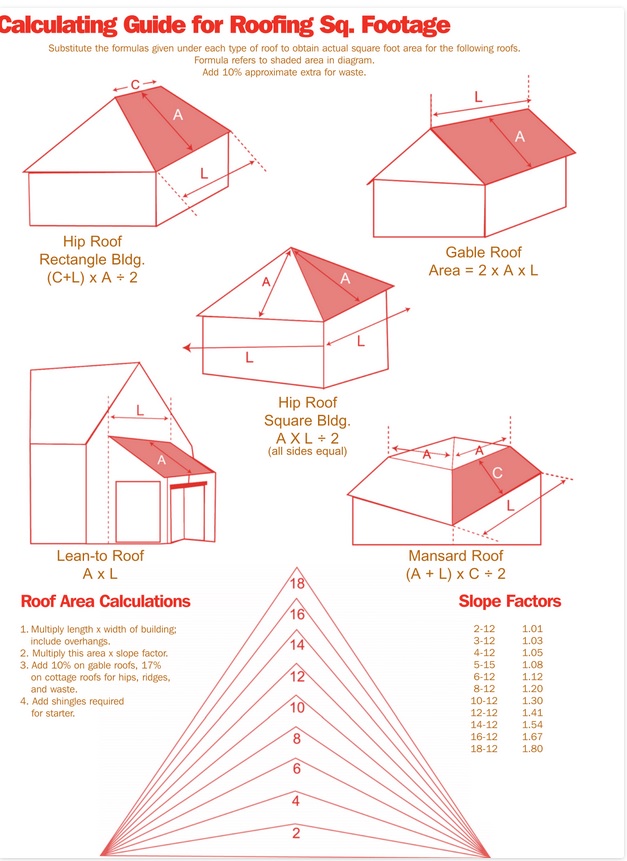 One square is equal to one hundred square feet. It is necessary to determine the number of squares that form up your roof as shingles arrive in bundles and each consists of a certain proportion of a square. The majority of shingle kinds takes about three bundles to occupy each square. When you multiply the square’s total number by three, you would get an idea of how many bundles are required for your project.
One square is equal to one hundred square feet. It is necessary to determine the number of squares that form up your roof as shingles arrive in bundles and each consists of a certain proportion of a square. The majority of shingle kinds takes about three bundles to occupy each square. When you multiply the square’s total number by three, you would get an idea of how many bundles are required for your project.
Once you have determined the number of shingles your roof requires, you can include ten percent extra to that number. Remember, no roofing task would get completed without a shingle wastage. By adding this extra, you can be prepared for wastage and that is a reality. Roofing Tech Nick from Andover roofing.
How to calculate other roofing expenses?
Apart from the underlayment and shingles, there are certain things to be considered for estimation.
Labor: You are not only paying for materials. Ensure to ask the roofers how they are estimating. Some estimate by adding materials and labor expenses separately and some give a total lump sum. It is necessary to ask how they calculate.
Shingle disposal: The old shingles would be removed. So, you would require a roofing dumpster to eliminate them. The roofer can handle this. However, you have to bargain for a discount if you are discarding on your own.
Flashing: It is set up in the roof valleys and also in the vents and chimneys to safeguard against water seepage. It is not simple to determine how much flashing is required. It is better to ask the roofers when getting estimates.




